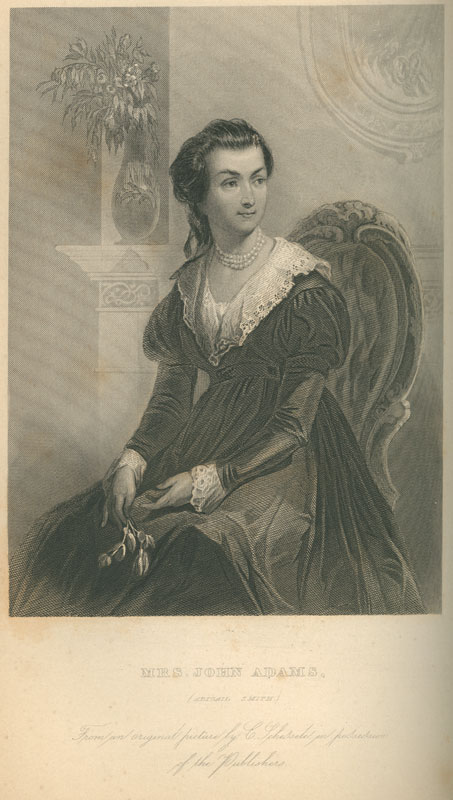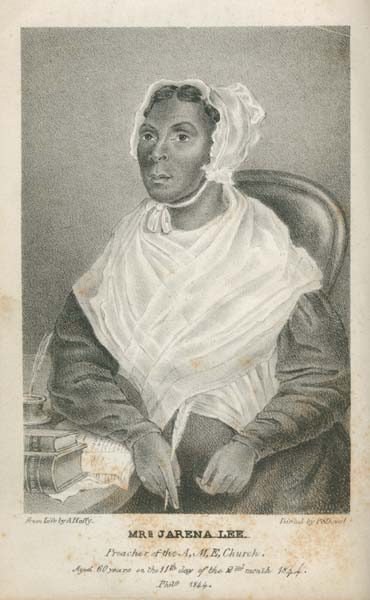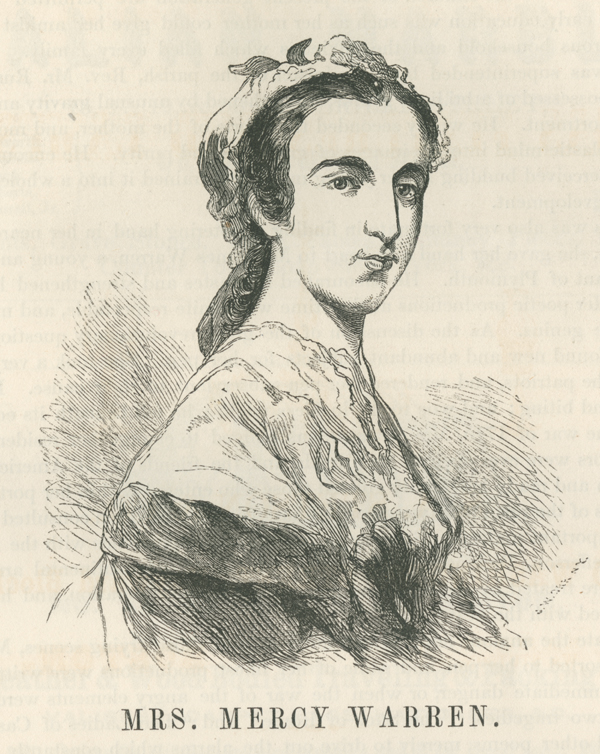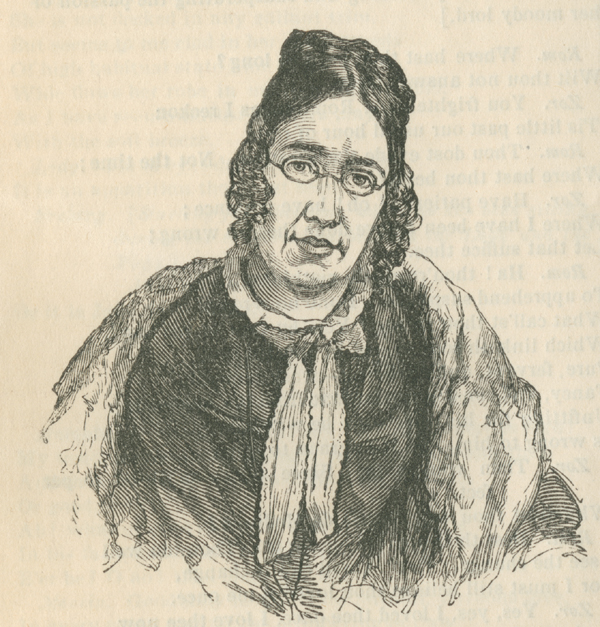Seminar Outline: Week 1
Rufus W. Griswold, The Republican Court, or, American Society in the Days of Washington. New and rev. ed. (New York, 1856), plate opposite 169. First ed., 1855.
Jarena Lee. Religious Experience and Journal of Mrs. Jarena Lee (Philadelphia, 1849), frontispiece.
Abner D. Jones, ed., The Illustrated American Biography, vol. 3 (1855), p. 107.
Williams, Sally. In Aunt Sally; or, the cross the way of freedom. (Cincinnati: 1858).
Beecher, Catharine E. In Sarah J. Hale, ed. Woman’s Record (1853), p. 578; also 1855 ed..
During the first week seminar participants will explore both the women’s history of the early Republic and some questions about the study and teaching of women’s history itself: whose words and ideas are represented by the available sources about women? What are the biases (of race, class, and gender) in those sources? Why did pleas by women to recognize women’s place in the new nation not result in changes in women’s legal status or a feminist movement? Readings will include articles by leading scholars Elsa Barkley Brown, Carole Pateman, and Nancy Fraser and Linda Gordon, as well as excerpts from Rosemarie Zagarri’s Revolutionary Backlash. Primary sources include the writings and speeches of Mary Wollstonecraft, Maria Stewart, Abigail Adams, and Eliza Southgate.
At the end of the first week, seminar participants will tour some of the historical sites associated with the early Republic in Philadelphia, including Independence National Historic Park, the President’s House Exhibit, and Mother Bethel Church. National Park Service curriculum guides will offer valuable models for how teachers have used these sites of historical memory in the classroom. Participants will consider what those sites – and the interpretations of them — demonstrate about American women’s history as well as how a focus on women might shift the sites’ role in shaping historical memory. During the first week, Erica Armstrong Dunbar, the Blue and Gold Professor of Black Studies and History at the University of Delaware and Director of the Library Company’s Program in African American History, will give an address on the subject of her book, Never Caught: Ona Judge Staines, The President’s Runaway Slave Woman.
Schedule and readings (preliminary)
Sunday:
July 2, 6PM, welcome forum at Lori Ginzberg’s house in West Philadelphia
Monday:
An Introduction to Women’s History
Morning:
Elsa Barkley Brown, “‘What Has Happened Here?” The Politics of Difference in Women’s History and Feminist Politics,” Feminist Studies (1992)
Linda Gordon and Nancy Fraser, “A Genealogy of Dependency,” http://www.jstor.org.ezaccess.libraries.psu.edu/stable/pdf/3174801.pdf
AFTERNOON:
Introduction to the Library Company’s Collections by Connie King
Tuesday:
JULY 4, no class – 21st Century Philadelphia celebrates Independence
Wednesday:
The Independent Citizen in a Republic
MORNING:
Carole Pateman, The Sexual Contract (1988) (excerpts)
Jeanne Boydston, “Making Gender in the Early Republic,” in James Horn, ed., The Revolution of 1800 (2002): 240-266
AFTERNOON:
Primary documents & Individual Meetings with the Director
Mary Wollestonecraft, Vindication of the Rights of Women (1792) (excerpt)
Maria Miller Stewart, ‘Why Sit Ye Here and Die?” 1832 speech in Franklin Hall, Boston
Thursday:
Rights Talk and Women
MORNING:
Linda Kerber, Women of the Republic: Intellect and Ideology in Revolutionary America (1997) (excerpts)
Rosemary Zagarri, Revolutionary Backlash: Women and Politics in the Early American Republic (2008) (excerpts)
AFTERNOON:
Primary documents & Individual Meetings with the Director
Abigail Adams’ letters to John Adams: Mar. 31, 1776; JA to AA 4/14/76; AA to JA 5/7-9/76
Eliza Southgate to Moses Porter, letters 1800-1801, in Nancy Cott, et al., Root of Bitterness (98-102)
Friday:
Site visit to Independence Hall, Pennsylvania Hall, President’s House, Mother Bethel.
Any views, findings, conclusions, or recommendations expressed in this program do not necessarily represent those of the National Endowment for the Humanities.






